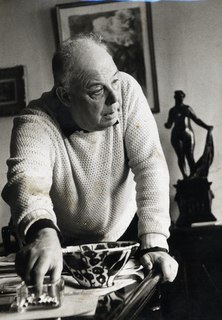Цитата Джумпы Лахири
Я люблю читать стихи, и все же на данный момент мысль о написании стихотворения для меня равносильна решению вопроса о тригонометрии.
Темы цитат
Связанные цитаты
Стихотворение не является, как кто-то выразился, отклонением от входа. Но настоящий вопрос заключается в следующем: «Что происходит с читателем, когда он или она проникают внутрь стихотворения?» Для меня это настоящий вопрос: вовлечь читателя в стихотворение, а затем увести его куда-то, потому что я думаю о поэзии как о форме путевых заметок.
Это один из тех вопросов, на которые хотелось бы получить четкий ответ. Вы знаете, работа поэзии в том, чтобы заставить нас чувствовать себя хорошо. Поэзия существует, чтобы позволить нам выразить наши самые сокровенные чувства. У поэзии нет одной роли в обществе. У поэзии много ролей. Я написал стихотворение, чтобы соблазнить свою жену. Я написал стихотворение, когда предложил ей выйти за меня замуж. Поэзия меня покорила. Поэзия вывела меня замуж.
«Божественная комедия» — это политическая поэма, и когда вы говорите, что поэзия не о чем — его всегда цитируют вне контекста, что «поэзия ничего не делает», это не значит, что вы пожимаете плечами и не пытаетесь заставить что-либо произойти. И Данте чувствовал, что речь идет о поэзии, есть точка зрения; это не моя точка зрения, это ортодоксальное средневековое христианство, и у меня с этим проблемы. Он не считал, что можно просто исключить такой важный отрезок жизни — мы заботимся об этих вещах, и именно из заботы о них мы пишем стихи.
Я начал в аспирантуре, чтобы быть писателем-фантастом. Я думал, что хочу писать короткие рассказы. Я начал писать стихи в тот момент только потому, что мой друг осмелился написать мне стихотворение. И я рискнул, потому что был уверен, что не смогу написать хорошее стихотворение... И тогда это было не так уж и плохо.
Я просто думаю, что мир мастерских - я написал стихотворение, которое является пародией на разговор о мастерской, я написал стихотворение, которое является своего рода пародией на болтливого поэта на поэтическом чтении, который тратит чрезмерное количество времени. объясняя стихотворение, прежде чем читать его, я написал ряд сатирических стихов о других поэтах.
Я надеюсь, что любое стихотворение, которое я когда-либо написал, могло стоять само по себе и не нуждалось в том, чтобы быть частью биографии, критической теории или культурных исследований. Я не хочу давать чтение стихов и должен рассказать историю, стоящую за стихотворением, чтобы оно имело смысл для аудитории. Я, конечно, не хочу, чтобы поэма нуждалась в критическом посреднике — «спикер-критике». Я хочу, чтобы мои стихи были независимо значимыми моментами силы для хорошего читателя. И это ожидание, которое я изначально привношу к творчеству других поэтов.
Я никогда не считал поэзию областью исключительно английской и американской литературы, и я открыл для себя много нового, читая польскую поэзию и другую восточноевропейскую поэзию, читая русскую поэзию, читая латиноамериканскую и испанскую поэзию, и я всегда находил образцы в этих произведениях. другие стихи поэтов, которые могли бы помочь мне на моем пути.
На вопрос «Является ли кино искусством?» мой ответ: «какое это имеет значение?» ... Вы можете снимать фильмы или выращивать сад. Оба имеют столько же прав называться искусством, сколько стихотворение Верлена или картина Делакруа… Искусство — это «творение». Искусство поэзии – это искусство сочинять стихи. Искусство любви — это искусство заниматься любовью... Мой отец никогда не говорил со мной об искусстве. Он не мог вынести этого слова.
Мое первое устное стихотворение, наполненное всей мудростью 14-летнего подростка, было о несправедливости того, что меня считают неженственной. Стихотворение было очень возмущенным и в основном преувеличенным, но единственная устная поэзия, которую я видел до этого момента, была в основном возмущенной, поэтому я подумал, что это то, чего от меня ожидали.
Поэзия актуальна как никогда. Обучение чтению стихов, однако, идет вяло и часто неряшливо. Это должно быть расширено в школьной программе и должно быть больше характерно для общества в целом. Во всех газетах должно быть ежедневное стихотворение. Это должно быть так же естественно, как чтение романа.
Это прозвучит безумно, но мне понадобилась целая вечность, чтобы понять, почему я перестал писать стихи — я имею в виду, у меня было около десяти лет, когда я писал очень мало стихов, и я думал, что это потому, что я вел еженедельный блог. А потом, когда мы переехали, я переделал свой письменный стол. В предыдущем было очень мало места для письма от руки. И вдруг поэзия хлынула!
































